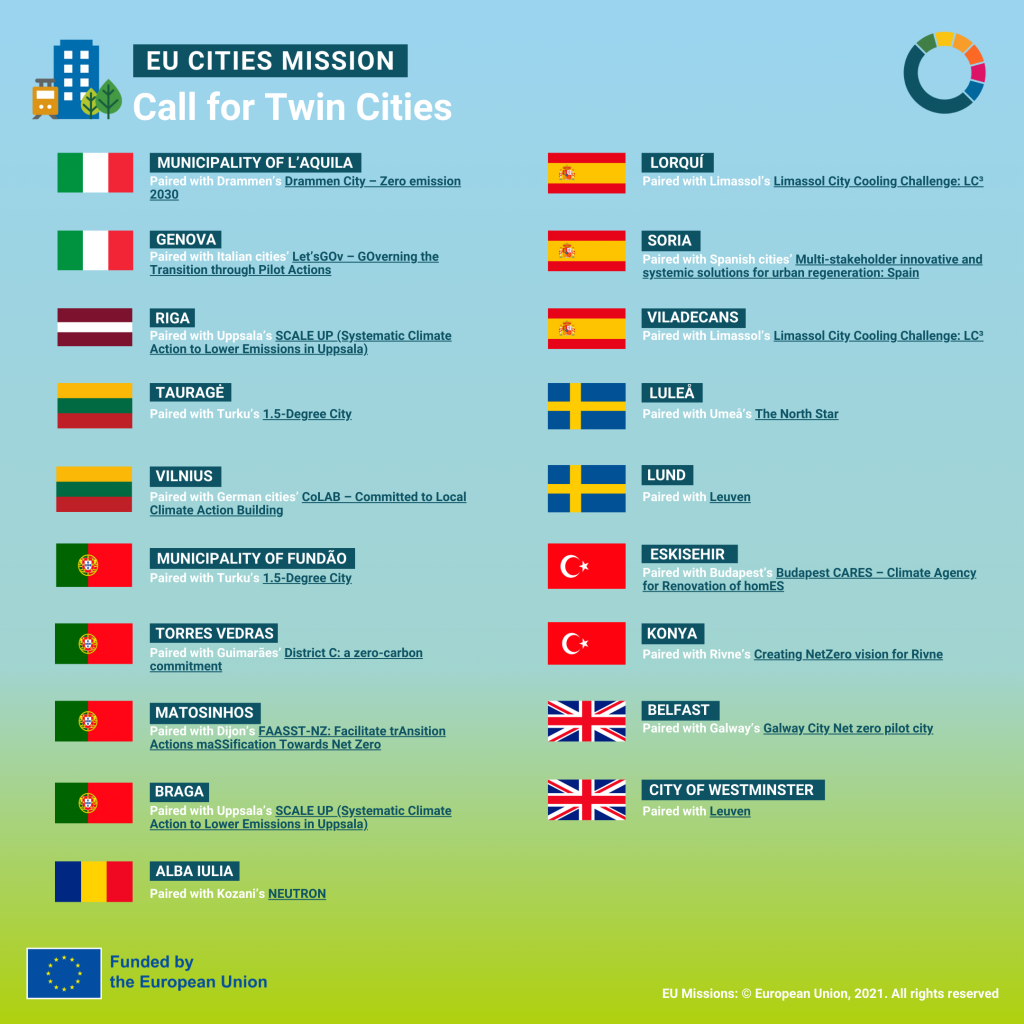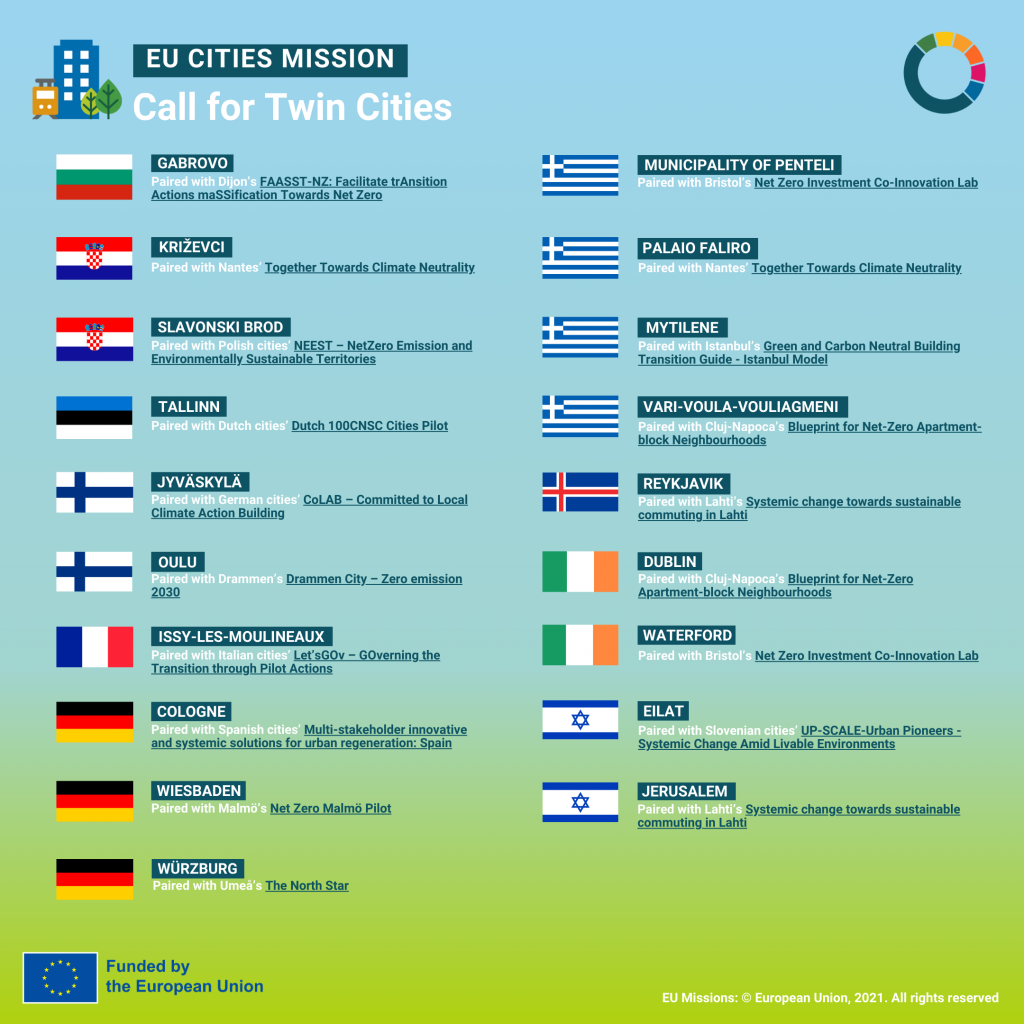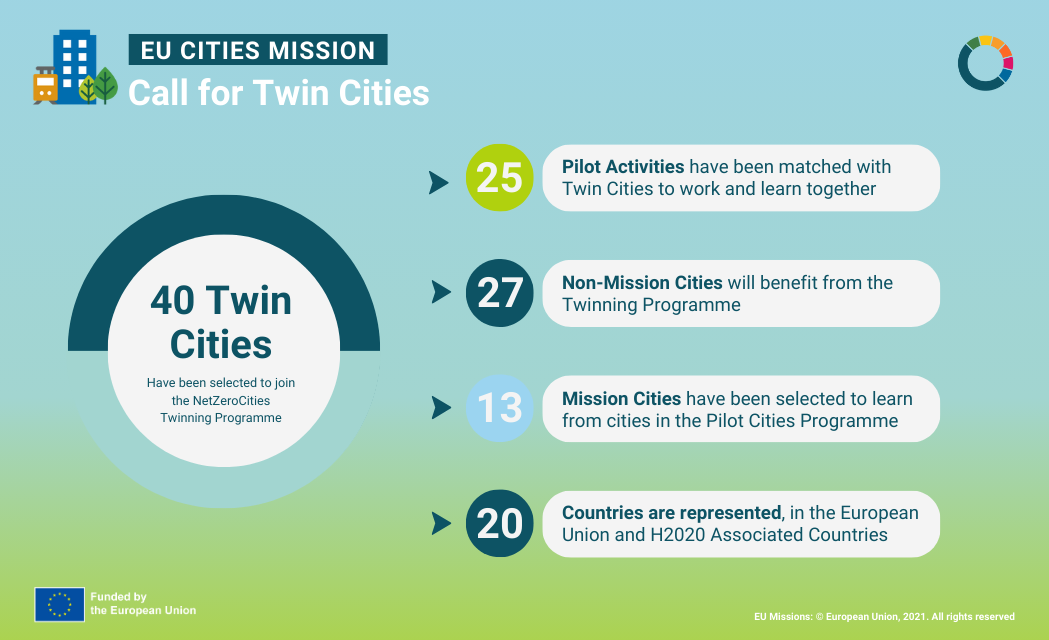Forty cities from across Europe have been announced as NetZeroCities’ first cohort of Twin Cities, joining the growing network of cities engaging with the EU’s Cities Mission to make more than 100 cities climate neutral by 2030.
The successful applicant cities, which include seven from Associated Countries of the Horizon 2020 research and innovation programme, will now be matched with a Pilot City or cluster of cities already innovating and piloting decarbonisation activities as part of the Cities Mission.
The NetZeroCities Twinning Programme ensures that progress on climate has a ripple effect, with success in one city paving the way for others to follow. Twin Cities have been paired with Pilot Cities based on common challenges, goals in terms of emissions reductions, and other shared traits – putting co-creation and exchange at the centre of a growing group of cities motivated to take practical action to address the climate crisis.
The Twinning Programme is the latest step in the Cities Mission to help cities collaborate and share knowledge and capacity on climate action through NetZeroCities, and aims to accelerate their progress to climate neutrality.
Over 20 months, beginning in September 2023, the new Twin Cities will capitalise on the achievements and experiences of Pilot Cities by learning and reproducing good practices. They will also have access to support from world-class practitioners and experts to help them achieve their goals.
Johanna Konttila, who works for the municipal waste management company Kiertokaari in Twin City Oulu, Finland, said: “What is most exciting about becoming a Twin City is the opportunity to collaborate on enhancing household waste recycling, gaining insights into changing people’s sorting behaviours, and exploring the utilisation of renewable energy and possibly landfill gas in circular economy initiatives.”
“We look forward to a seamless partnership where we can mutually share knowledge and provide valuable insights to NetZeroCities Pilot Cities.”
Dr Amy Jones, Director of Environment at Westminster City Council in the United Kingdom, said:
“Westminster City Council is committed to reaching net zero across the city by 2040 and we know that working in partnership with a range of stakeholders is the only way we will achieve this. We are excited to be taking part in the Twinning Programme and to be working closely with Leuven on tackling our shared barriers to reaching net zero. 86% of Westminster’s emissions come from the built environment and we are keen to explore innovative new ways of tackling this issue in Westminster by learning from best practice beyond our city borders.”
Ph.D. Dina Del Tosto from the Office of Environmental Policy and EU Programmes, L’Aquila, Italy, said:
“It is in urban areas that the challenge to climate change will be won or lost. L’Aquila is a beautiful city among the highest mountains of the Apennines and near a lot of protected areas. The battle against climate change is at the top of mountain areas and joint and shared solutions are needed to respond to the specificity of the mountain system and of the natural parks. Being the leader of the Aterno River Contract, we are very interested in water resources related to climate change and the use of nature-based solutions applied to the river ecosystem. As part of my exchange with NetZeroCities Pilot Cities I look forward to learning the ecosystemic approach to CO2-reduction, involving regional businesses, municipalities, universities, and citizens and the implementation of a nature-positive approach when reducing CO2”
Thomas Osdoba, Programme Director at NetZeroCities, said: “The twinning process is another new, bold step towards climate neutrality for cities across Europe and beyond, recognising the urgent need for better climate policies and acting on it. By partnering European cities as they work on innovative new approaches to respond to the climate emergency, they can learn from each other and adapt their learning to their local needs.
“We look forward to the successes of these new partnerships between cities and welcoming more cities to engage with NetZeroCities in the near future.”
Cities have several opportunities to get involved in the learning journey proposed by NetZeroCities, whether as a Mission City, Pilot City’, or Twin City, depending on their commitments and progress to climate neutrality. The next call for applications to become a Twin City Cohort 2 will take place in spring 2024. In the meantime, the 40 Twin Cities are expanding the impact of climate neutrality-oriented actions taking place not only across the Cities Mission, but in an expanding network of cities engaging with the goal of climate neutrality by 2030.


You can download the press release, here.
Additional information for editors:
NetZeroCities is a project consortium consisting of 33 partners from 27 European countries, managing the EU Cities Mission platform. The project supports the 112 European cities known as the Mission Cities in drastically reducing their greenhouse gas emissions to achieve climate neutrality. The EU Cities Mission supports the European Green Deal in building a low-carbon, climate-resilient future through research and innovation.
Twinning Programme
The Twinning Programme is a 20-month programme that aims to transfer knowledge and build capacities across the Pilot Cities and Twin Cities engaged in the programme. It will start at the end of September 2023 and will end in May 2025. Twin and Pilot Cities with a similar thematic focus in realising climate neutrality have been matched to actively shape each other’s development through knowledge exchange and collaborative problem-solving. Relationship building as well as the mutual learning experience are at the core of the exchange.
Upon completion of the learning cycle, Twin Cities will embed the relevant learnings from Pilot activities across their city.
Media contact: Alan MacKenzie – alan.mackenzie@iclei.org





